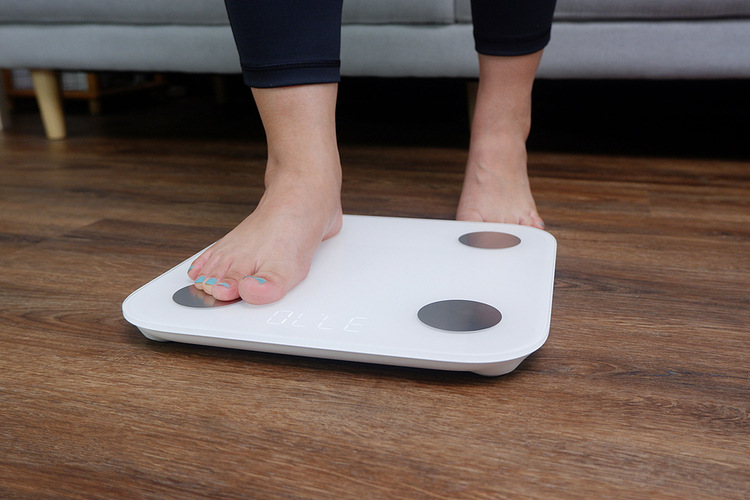When it comes to guilty pleasures, “My 600-Lb Life” is definitely one of mine. While watching it years back, I developed an interest in bariatric surgery. For someone struggling with weight loss like myself, it seemed like a glimmering light at the end of a pitch-black tunnel. But weight loss surgery is not for everyone. Here, I’ll weigh the pros and cons, so you can decide if it’s right for you.
This article is specifically about bariatric surgery. I’ll cover other surgeries intended for weight loss, such as liposuction, in a different post.
What Does Bariatric Surgery Involve?
Weight loss surgeries are procedures that change the stomach and intestines in some way to treat obesity and the conditions that come with it. Many types of bariatric procedures exist. The patient’s unique needs determine which procedure to use. Here’s a summary of the three most common bariatric surgeries:
Gastric Bypass
A gastric bypass is an effective form of weight loss surgery that involves cutting the stomach into two parts. The smaller part of the stomach connects to the small intestine and bypasses the remaining, larger portion of the stomach.
The larger part of the stomach connects farther down the small intestine and provides the stomach acid and digestive enzymes. Because of this, food digests in the small intestine and not the stomach itself.
Sleeve Gastrectomy
Gastric sleeve surgery staples off part of the stomach, making it about the size of a banana. The procedure is simple, not requiring surgery on the intestines. After a gastric sleeve procedure, patients will feel fuller and experience a reduction in hunger.
Adjustable Gastric Band
Adjustable gastric band surgery installs a band around the top of the stomach. This band creates a pouch just below the esophagus and makes the patient feel fuller. Adjusting the band will make the patient feel different levels of fullness.
While this procedure does not require cutting part of the stomach or intestines, the patient must keep the band around their stomach for it to work. However, it’s easy to make adjustments to the band without surgery. If necessary, one can remove the band at any time.
The Positives of Weight Loss Surgery
Even though it’s drastic, bariatric surgery can have a positive effect on the many conditions that go along with morbid obesity. Complications like sleep apnea, type 2 diabetes, and high blood pressure commonly improve following the surgery. Also, weight loss surgery can help prevent these conditions from starting. This can give a patient a better quality of life than they would have had otherwise.
Also, it is effective at bringing the body to a healthy weight because it increases fullness and alters how the body absorbs food. Most patients lose weight continuously for the first 1.5-2 years. Losing half their excess weight and keeping it off for at least 5 years is a common result.
Well-improved over the years, the risks of bariatric surgery are fairly low. The method of surgery, called laparoscopic (keyhole), makes small incisions in the patient and uses a camera to see inside. Small tools inserted through these incisions carry out the procedure. This method of surgery creates smaller scars, an easier recovery, and a low risk of complications.
Bariatric surgery also uses general anesthetic. Patients are asleep during the procedure and won’t feel pain. General anesthetic is considered low-risk when used correctly and is given safely to patients who have severe medical conditions.
Lastly, with gastric band surgery, the procedure doesn’t involve cutting any internal organs. It is also reversible, and the patient typically leaves the hospital the same day.
The Risks of Bariatric Surgery
While weight loss surgery can be very effective in treating obesity and the issues caused by it, it’s not a quick fix. There are many risks and side-effects of surgery that should be kept in mind when choosing if it’s right for you. Here are the most common risks of bariatric surgery.
The general risks after weight loss surgery include breathing and swallowing problems, bleeding, infection, and leaking somewhere in your digestive system. Longer-term risks are chronic indigestion, ulcers, malnutrition, gallstones, and bowel obstruction. Patients may also experience “dumping syndrome,” where the patient feels sick after eating.
There are small side effects with general anesthetic to consider, such as nausea, temporary memory loss, and dizziness. For older patients, patients with an existing condition, or heavy smokers and drinkers, the risks are far greater. Problems such as heart attack, stroke, and pneumonia can arise. Death caused by general anesthetic is rare.
With gastric band surgery, you may need to have the band adjusted a few times to find the right tension. It’s also not as effective for weight loss as the other surgeries. The band can move out of place, which needs more surgery to fix. In the case of gastric bypass and sleeve gastrectomy, you can’t reverse the procedure.
Lastly, there’s always the risk that the surgery may not work for you.
Is Weight Loss Surgery Worth It?
After bariatric surgery, your life will change forever. You will need to make permanent, healthy changes to your diet and exercise habits. You’ll always be checking in with your doctor so they can keep an eye on your condition, eating habits, and progress.
Weight loss surgery is also very costly. In the US, the cost per surgery can run you $15,000-$35,000. Be sure to check with your insurance provider to make sure they cover this type of procedure.
Some weight loss surgeries require you to stay in the hospital for a few days, with a couple of days where you cannot eat while the organs heal. Then, you’re fed a liquid diet and work slowly up to solid foods. Many tests and checkups follow the procedure. Make sure that you can take the time from work to support your recovery.
After consulting a doctor, you’ll likely get a healthy eating and exercise plan. They may also put restrictions on alcohol and tobacco use. This is to prove you can change your lifestyle before getting the operation and show you’re a successful candidate.
At this point, you may find you can lose weight on your own. Then you won’t have to undergo the pain, preparation, and aftercare of bariatric surgery. Consider if you really need the surgery or if you’re fine losing weight by yourself. Either way, you’ll still be following a healthy eating plan.
It’s up to you to decide if you’re willing to take the risk and all the hassle. If the risk outweighs the reward, then weight loss surgery is likely not the option for you.
An Excellent Alternative to Surgery
Are you looking to stop overeating and finally get your life back? I have the perfect recommendation for you! Never Binge Again by Dr. Glenn Livingston is a book that effectively teaches readers how to take control of their eating. This book gives you the power to stick to any eating plan you choose, including one created to include the foods you love!
The Never Binge Again method has helped me finally stop binge eating and move on with a healthy life. Glenn himself reads the audiobook, so you hear it the way it’s meant to sound. If you’d like to learn more about Never Binge Again, I wrote an in-depth and honest review here.
When to Have Bariatric Surgery
Knowing when to have bariatric surgery is important for taking your health in the right direction. Weight loss surgery is often done when you haven’t had success losing weight or when you’re at risk of serious health problems.
Since weight loss is complex, your body may not be able to achieve it through diet and exercise alone. Because weight loss surgery changes how your body handles food, it may be your key to success. But you should consider if you’re actually unable to lose weight on your own or if you haven’t been following a good weight loss plan.
How overweight do you need to be to see a weight doctor? Depending on where you are, the criteria for weight loss surgery can be different. Often, you’ll qualify if your BMI is in the 40+ range (extreme obesity) or you are obese with an underlying health condition. Your doctor will be able to tell you if you’re a good candidate for weight loss surgery, and you can decide from there.
If you do decide to get weight loss surgery, don’t be ashamed. Needing bariatric surgery does not mean that you are lacking discipline or doing something wrong. Some people have a tougher time losing weight and need to take immediate action to fix their health problems. Do what’s necessary to make yourself healthy.
“The greatest of follies is to sacrifice health for any other kind of happiness.” – Arthur Schopenhauer Click To TweetWeight Loss Surgery: In Conclusion
In summary, bariatric surgery is a type of procedure that makes changes in the body that promote weight loss. The most common procedures are gastric bypass, gastric sleeve, and adjustable gastric band. Weight loss surgery provides an effective way to lose weight and combat the risks that come with obesity.
It’s important to know when to have bariatric surgery. Because many risks come with these surgeries, like infection, bleeding, and leaking in the digestive system, you need to weigh your options. Bariatric surgery may not be right for you.
Weight loss surgery will not work if you don’t follow a healthy eating plan afterward. If you’re able to lose weight following the same plan without surgery, it’s better to omit the surgery and the complications that come with it. But if you haven’t been successful with weight loss and need help, discuss your options with your doctor. Your health is important, and you should do whatever it takes to live a happy, fulfilling life.
Have you or someone you know had weight loss surgery? I’d love to hear your experience. Share your story in the comments!
That’s it for now everyone. If you’ve found some value in this post, please share it to inspire others too! Thanks!

Facebook | Twitter | Instagram | Pinterest
This post contains affiliate links for products that I love. If you use these links to buy something I may earn a commission with no additional cost to you. Thanks for helping keep this site going! Also, this post was made for the site Lose Weight With Ang. If you’re reading this on a different site, please email us https://loseweightwithang.com/contact/
References:
- https://asmbs.org/patients/bariatric-surgery-procedures
- https://www.mayoclinic.org/tests-procedures/bariatric-surgery
- https://www.nhs.uk/conditions/laparoscopy/
- https://www.medicalnewstoday.com/articles/265592#local-vs-general
- https://www.obesitycoverage.com/insurance-and-costs/how-much/average-laparoscopic-gastric-bypass-prices
- https://uihc.org/health-topics/how-effective-bariatric-surgery





I think that’s such an important point that weight loss surgery has to be paired with healthy eating to work, and that four pillars approach sounds brilliant.
I was actually going to copy and paste a sentence from the post into the comments, and discovered your site doesn’t allow copying. How very fancy!
I think a lot of people wouldn’t want weight loss surgery once they see the lifestyle changes you have to incorporate forever. Weight loss surgery is only meant for people who have real trouble losing weight. It’s not a quick fix at all.
I have an anti-copying plugin installed. Though, that didn’t stop someone from copying an entire post a couple weeks ago. I just hope it makes it harder for them to do.
How annoying.
Thank you so much! I hope she was able to work her way back to health eventually.
I guess imitation in the sincerest form of flattering. But, it’s not good when copyright violations are the case. Great and informative post!
Thank you my friend 🙂
A very informative post about an important decision some people are faced with.
Thank you Bernadette!
Such an informative post. I like the way you discussed the Pros and Cons. Your post will really help anyone considering weight loss surgery to make the right decision for them. Thanks for sharing!
Thank you so much Sheri!
Such a well written and informative post! I used to watch my 600lb life in awe and wondered why it was so hard to get over the initial hurdle of losing the first few pounds for something that would make it easier in the long run, but after understanding why it is a requirement, I saw the surgery as something that isn’t just black and white or one size fits all.
Absolutely. It’s definitely something that needs a lot of thought before going through with it.